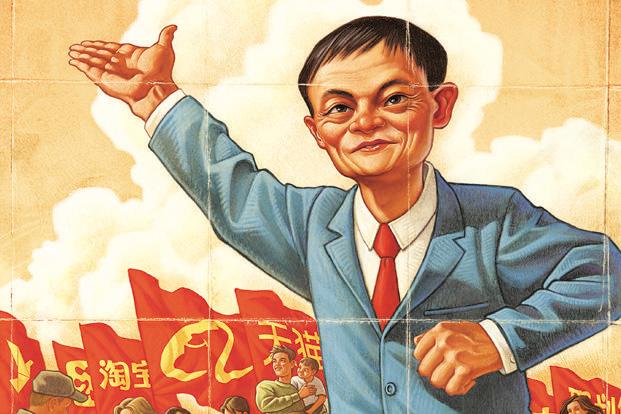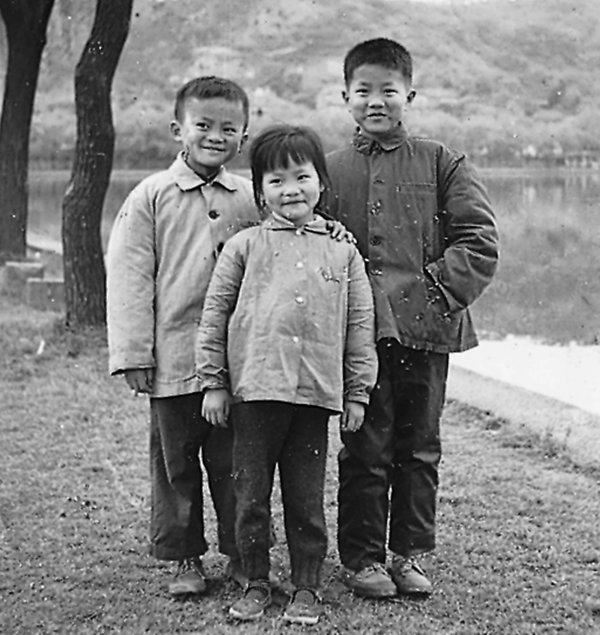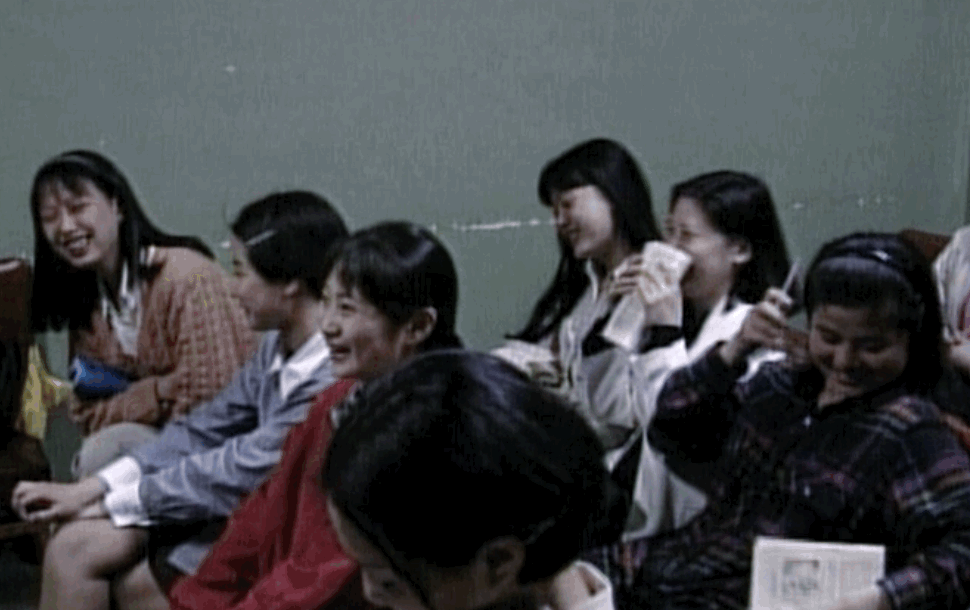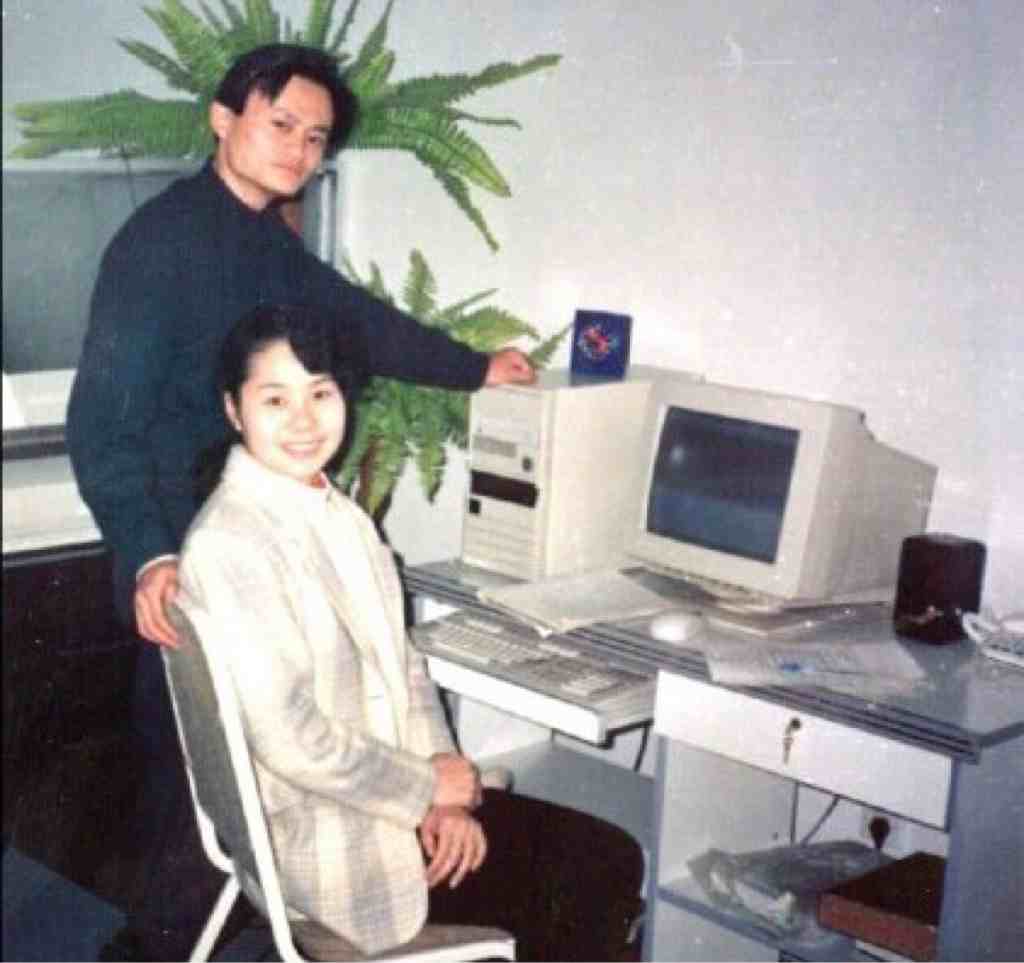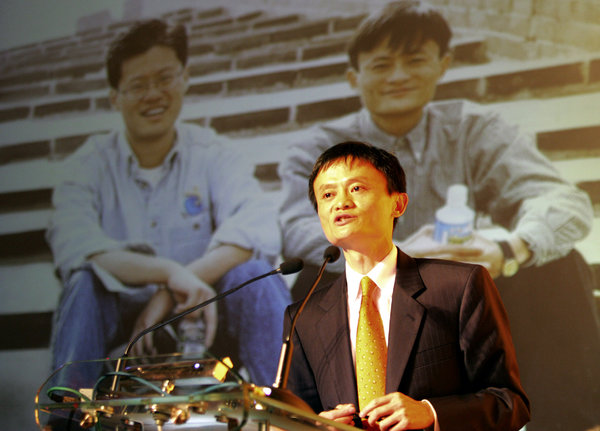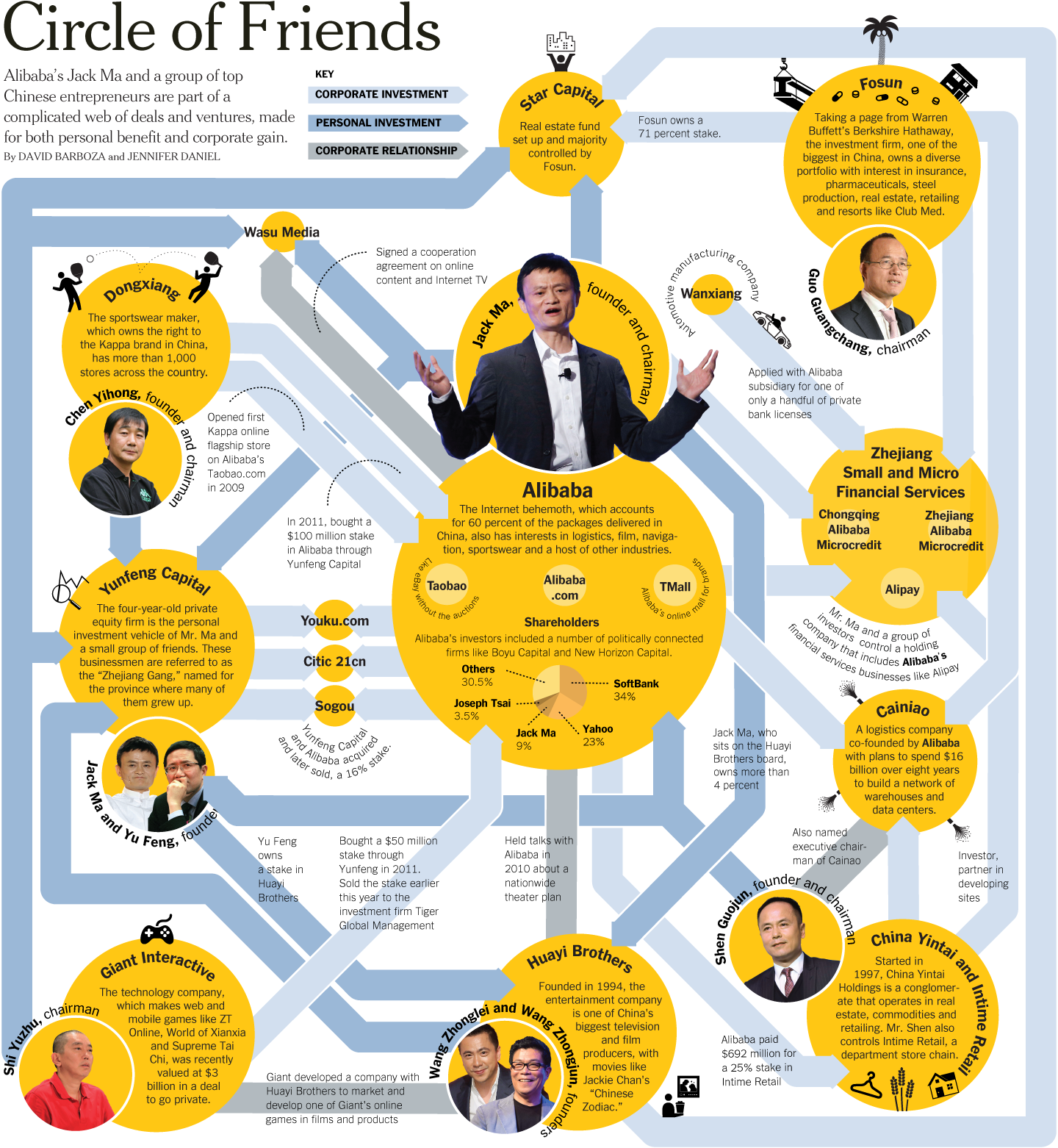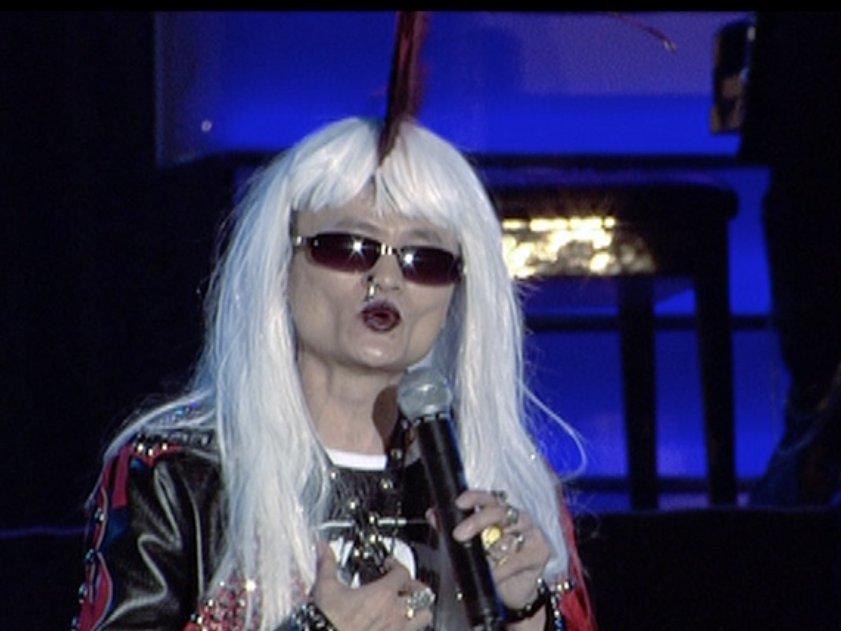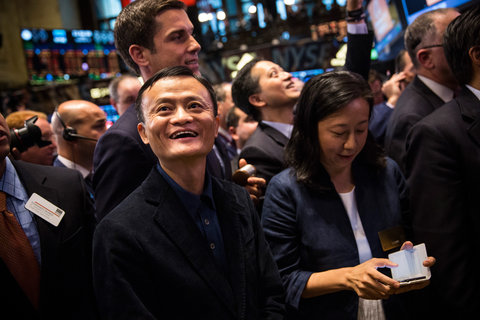The Story Of 'Crazy Jack Ma' And How He Made Alibaba A Tech Behemoth
All you need to read about the man who is famously referred to as 'Crazy Jack' and hopes to stay crazy for the next 30 years, and how he built Alibaba into the David that has successfully taken over several of the Goliaths.
Alibaba, a company started out of Jack Ma's apartment in 1999, is now a technology colossus worth more than US stalwarts such as eBay and Hewlett-Packard Co. Under Ma's leadership, Alibaba has become a symbol of China's breathtaking economic rise.
Jack Ma is no longer the CEO of Alibaba. He's the chairman, but he's still the face of the company. Ma has never been a typical tech CEO. He failed the college entrance exam twice before he finally got in. He founded an enormous tech company, yet he had studied to become a teacher and still doesn't know how to code. Back in the mid-2000s, when Alibaba was battling eBay in China, reporters used to call him "Crazy Jack" because of his animated manner of speaking and bold goals.
 businessinsider.in
businessinsider.in
Ma's story starts from the year 1964 in a city near Shanghai, China, where he was the middle of three children born to a pair of performers of Pingtan, a traditional musical storytelling technique
A young Jack Ma, left, with his older brother and younger sister by West Lake in Hangzhou, China.
Image via nyt.comMa grew up in the eastern Chinese city of Hangzhou, the middle of three children born to a pair of performers of pingtan, a traditional musical storytelling technique. At 10, Ma Yun, as he is known in Chinese, took a liking to English and would ride his bicycle to the Hangzhou Hotel to practice with foreign tourists, an experience he said opened his mind to the outside world.
 livemint.com
livemint.com
His poor math skills almost prevented him from attending college. But after passing the national college entrance exam on the third try, Ma gained admission to a local teachers’ college, where he excelled and was elected president of the student union. Eventually Ma graduated from Hangzhou Teacher's Institute in 1988. He says that he was rejected for a number of jobs - including a manager position at Kentucky Fried Chicken - right after he graduated.
When Ma graduated, he took a USD14-a-month job teaching English at the Hangzhou Institute of Electronic Engineering and quickly became one of its most popular instructors
During China's export boom, Ma ended up starting a translation company, which would ultimately lead him to visiting the United States for the first time in 1995 where he discovered the Internet
Mr. Ma stayed with Dave and Dolores Selig, relatives of Mr. Aho, during his first visit to Seattle.
Image via cnitblog.comHe visited the US for the first time in 1995. Ma had befriended Bill Aho, an American who taught English in Hangzhou, and stayed with Aho’s relatives in Seattle. There, he was introduced to the World Wide Web by Aho’s son-in-law, Stuart Trusty, who ran one of America’s first Internet service providers, VBN. “At that time, I had an office in the US Bank tower, and Jack came and I showed him what the Internet was,” Trusty says. “Back then, the Internet was largely a directory for governments and businesses, but he seemed excited.”
 livemint.com
livemint.com
Ma returned home and set up one of the country’s first Web companies, China Pages, an online directory for domestic businesses looking for customers overseas. Former colleagues say Ma worked tirelessly, knocking on doors, taking photos, collecting information and translating it into English. When done, he mailed the listings to VBN in Seattle to post on the Web. “At that time, the concept of the Internet was foreign to the Chinese people—people had no idea and no reaction when we introduced them to the idea,” said Yu Xiaohong, one of Ma’s partners at China Pages.
China Pages, his first attempt at an Internet business, ultimately failed. In 1996, Jack Ma was pressured into a joint venture with China Telecom and ultimately lost control of the company.
China Pages struggled at first, but Ma was optimistic. During a 1996 trip to Seattle to meet his partners at VBN, he seemed confident he would strike it rich, says Aho, who travelled with him. “I remember him looking at the expensive houses in the Queen Anne Hill area,” Aho recalls. “He’d point at houses and say, ‘When I get rich, I’m going to buy that house there, and that house...’ And at that time, he didn’t have a nickel.”
 livemint.com
livemint.com
Then Ma lost control of his company. In 1996, China Pages was pressured into forming a joint venture with Hangzhou Telecom. The deal put the government firmly in charge. Discouraged, Ma went to Beijing to work at Infoshare, an Internet advertising agency set up under China’s ministry of commerce. Ma lasted just 14 months at Infoshare. Itching to run his own company, he returned to Hangzhou. “At that time, I felt it was too tiring doing e-commerce in the government,” Ma said in a 2005 interview. “E-commerce should start with private enterprises.”
But determined to try again, Ma started Alibaba on 21 February 1999. His second-floor apartment at the Lakeside Gardens in Hangzhou became the makeshift headquarters. There, among his 17 friends with whom he started the company, he gave a long talk about his ambitions and how much China needed a great start-up.
He picked the name, he later explained, because “everyone knows the story of Alibaba. He’s a young man who is willing to help others”. The company was built on a similar premise: to help businesses find overseas customers. If a US retailer was looking for a supplier of cotton slippers in China, it might turn to Alibaba.com. If a Chinese producer of buttons wanted to export to South Korea, it could advertise on the site. Alibaba, as he saw it, would be a virtual meeting room for small- and medium-size businesses engaged in global trade.
 livemint.com
livemint.com
The site, Alibaba.com, let exporters post product listings that buyers could browse, and it started to attract members from all around the world. By October 1999, the company had raised $5 million from Goldman Sachs and $20 million from SoftBank, a Japanese telecom company that also invests in technology companies.
 businessinsider.in
businessinsider.in
Along with foreign investors, Ma shared a large chunk of the company with his 17 co-founders; most were friends and former students, and also among them was his wife, Cathy. “This was really unusual, his willingness to share,” says Chauncey Shey, who works for SoftBank and helped make the initial investment. “Most founders aren’t willing to do that, and so that gave us more confidence in him.”
In 2002, Ma, who had the final say in strategy, proposed setting up a consumer-oriented site to compete with eBay. He called up Masa of SoftBank and said: 'Masa, we're thinking of doing this. We're going to let you know, but we're going to do it with or without you.' Masa called back in five minutes and said, 'I want in.'
Most of his top executives opposed the idea, since eBay was a formidable company and its Chinese partner already had a huge share of the China market. “Most managers were against it,” says John Wu, who was then the chief technology officer at Alibaba. “I said: ‘We’re barely breaking even. And besides, every business school textbook says focus on what you do best. How can we create a second site?’”
 livemint.com
livemint.com
Ma, who says he got his "dream from America" considers Forrest Gump as his role model. With financing from SoftBank, Ma set up a secret task force to develop the consumer site, which they called Taobao, Chinese for "searching for treasure."
Ma at the Alibaba global coming-out party in August 2005, with a photograph in the background of Jerry Yang, left, of Yahoo and Mr. Ma.
Image via nyt.comWhen it was introduced in July 2003, Alibaba used it to wage guerrilla warfare on eBay and its Chinese partner, EachNet. EachNet was more of an auction site and took a commission. Taobao allowed more direct selling and was initially free. When Mr. Ma vowed that it would remain free for years, eBay shot back in a release, “Free is not a business model.” (Taobao now makes money through fees.)
Ma predicted that eBay’s China operation would soon collapse because of pressure to deliver quick profit. He was right. In China, “eBay really underestimated Jack’s tenacity and Alibaba’s ability to follow through on a strategy”, says Duncan Clark, founder of BDA China, a Beijing-based consulting firm. With Taobao growing quickly, eBay moved to make a deal, according to people involved in the discussions. In mid-2005, Whitman held secret talks with Ma in China to discuss cooperating with Alibaba or buying Taobao outright. Ma was invited to eBay’s campus in San Jose, California.
 livemint.com
livemint.com
But Ma wanted to maintain control and opened talks with Jerry Yang, a co-founder of Yahoo, who was searching for new opportunities in China, according to people involved in the negotiations. The deal was a good fit. Ma received a $1 billion cash infusion to buy out some shareholders and invest. He also had a collection of sites like Yahoo China that he thought would transform Alibaba into a powerhouse. At the 2005 news conference in the China World Hotel, Yahoo’s chief operating officer, Daniel Rosensweig, leaned over and whispered in Ma’s ear. “Jerry Yang had warned me that whatever you do, don’t let Jack Ma say he acquired Yahoo,” recalled Rosensweig. Ma leaned back and laughed heartily.
Ma, who considers himself a purist, says, "I don't spend 15 minutes thinking about making money. What is important in my life is influencing many people as well as China's development. When I am myself, I am relaxed and happy and have a good result."
For all his success, Mr. Ma has retained his authenticity. He recognizes that leadership is character, and he is focused on building his team. His role model is a well-oiled soccer team where 11 players work together for the success of the team. He would rather hire entrepreneurs than seasoned business executives, who are always looking over their shoulders, trying to please their bosses rather than their customers.
His own commitment to a cause larger than himself has propelled him onward. “My vision is to build an e-commerce ecosystem that allows consumers and businesses to do all aspects of business online. I want to create one million jobs, change China’s social and economic environment and make it the largest Internet market in the world.” American tech leaders like Steven P. Jobs, Larry Page, and Mark Zuckerberg have emphasized technology and product above everything. Not Mr. Ma. “I’m not a tech guy,” he said. “I’m looking at technology with the eyes of my customers, normal people’s eyes.”
Ma's lighthearted nature has created a unique culture and fun atmosphere at Alibaba where employees are encouraged to do handstands to bolster their energy during breaks, and participate in an annual talent show where he sings pop songs
Jack Ma donned a crazy wig and sang a song from the Lion King to celebrate Alibaba's tenth anniversary.
Image via businessinsider.comWith a love of performance (probably inherited from his parents), Ma also helped create a quirky, fun atmosphere at the company. When Alibaba first became profitable, Ma provided every employee with a can of Silly String to go wild with. When the company decided to start Taobao, its eBay competitor, in the early 2000's, he got the team working on it to do handstands during breaks to keep their energy levels up.
 businessinsider.in
businessinsider.in
Even today, Alibaba hosts an annual talent show every year in an enormous stadium that gets employees rehearsing for weeks. Ma has blessed hundreds of newlywed Alibaba employees in wedding attire during an annual ritual.
wsj.comHe practices tai chi and uses the nickname “Feng Qingyang,” a reference to a Chinese kung fu guru who trained an apprentice into a hero. Mr. Ma called martial arts “the most down-to-earth way of explaining Confucianism, Buddhism and Taoism,” adding, “They cherish brotherhood, morality, courage, emotion and conscience.”
Worried that China lost an entire generation when Mao Zedong phased out Confucianism and other forms of spirituality, Ma hoped to restore that sense of values and purpose to the next generation
“It’s not policies that we need, but genuine people,” he said. Asked about corruption in China, he said, “I would rather shut down my company than pay a bribe.”
He listed three worries: continuing to create genuine value for his customers, working cooperatively with the government and building his team of global leaders. What will he do with his fortune? His big dream is to found a university for entrepreneurs that can create the new generation of Chinese entrepreneurs.
Ma, however, isn't without mistakes. In the early days of Alibaba, as the company grew rapidly, it also burned through massive capital, forcing Ma to lay off his entire international staff.
A clip from one of Taobao's early ads. Taobao lets sellers sign up for free and has a human touch that appealed to the Chinese public.
Image via businessinsider.comErisman can remember a phone call after Ma had decided to close Alibaba's U.S. office, where Ma was questioning himself, wonder whether or not he was a bad person. Ultimately though, it was Ma's willingness to take risks and his dedication to creating a website that catered to the needs of China's citizens - many of whom were just discovering the Internet - that helped the company beat eBay in China in the mid-2000's.
 businessinsider.in
businessinsider.in
Taobao is now one of the top twenty most-visited websites globally, and, combined with another Alibaba site, Tmall, it had a total transaction volume of $240 billion in 2013.
 businessinsider.in
businessinsider.in
In 2013, while stepping down from the position of CEO of Alibaba, Ma said: "I thought it would be easier when I stepped down from CEO. But now I'm finding out being a chairman, if you want to be a good chairman, is much busier than being a CEO."
After the company filed for its IPO, Ma wrote a letter to Alibaba employees, which was printed by The Wall Street Journal. In it, Ma tells the team that there is "unparalleled ruthlessness and pressure" ahead, but that the company can overcome it by sticking to its original mission and culture.
"We know well we haven't survived because our strategies are farsighted and brilliant, or because our execution is perfect, but because for 15 years we have persevered in our mission of 'making it easier to do business across the world,' because we have insisted on a 'customer first' value system, because we have persisted in believing in the future, and because we have insisted that normal people can do extraordinary things." Read Ma's full letter to his employees
A force of nature, Ma may become the role model for the new generation of global leaders, not just in China, but also world wide
Jack Ma, Alibaba's founder, on the floor of the New York Stock Exchange on Friday.
Image via nytimes.com“Our challenge,” he said, “is to help more people to make sustainable money that is not only good for themselves but also good for society. That’s the transformation we are aiming to make.”
